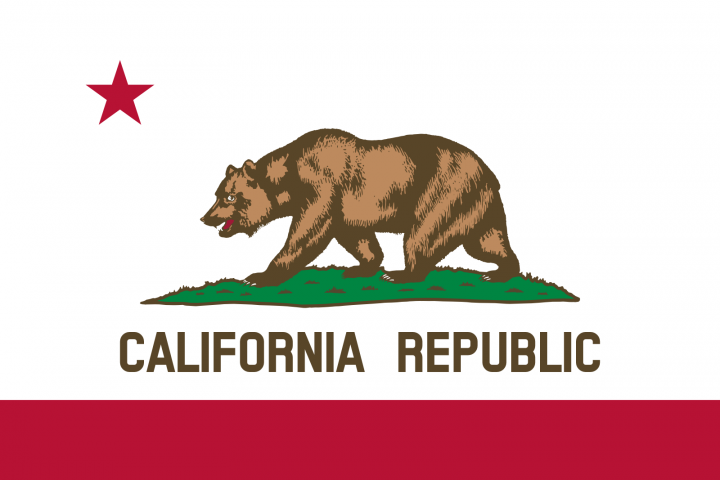How to Become an Ordained Minister in California
If you haven't yet become ordained with the Universal Life Church, that is the first step. Anyone willing can become a legal minister of the ULC, one of the world's largest religious organizations. Online ordination is fast, easy, and completely free. Once you have your minister license, you'll be eligible to officiate a wedding. To become a minister, start by clicking the button below!
Video Walkthrough: Performing a Wedding in California
And that's your comprehensive guide to officiating a wedding in California! We get it – that was a lot of text to absorb. Did you know we have a full video series on how to get ordained to officiate a wedding in each state? Check out the video guide for performing a wedding in California below!
How to Officiate a Wedding in California
Contact the County Clerk's office in the county where the ceremony will take place. Introduce yourself as a minister officiating a wedding, and ask them what documents they will need from you. They may ask to see a number of things, and be aware that these requirements vary from county to county. Rest assured that any materials or documents you might need are available in the Church Supplies section of our website.
Select your county to view contact information for each office:
Officiant Requirements in California

The California state flower, the California Poppy
Once you've determined what you need, simply log in to your account and order the materials from our online catalog. Based on the feedback we've received from our ministers in California, we recommend ordering a California Wedding Kit. Although ministers are generally not required to register in the state of California, it's possible the county clerk will ask you to present proof of your ordination before they will accept the legality of the ceremonies you've performed. Also keep in mind that the couple may like to see your ordination credentials. As requested by the county clerks, please place your order well in advance of the wedding to avoid complications.
How to Get a California Marriage License
Licenses are issued by the County Clerk's office, and will be picked up by the couple. As a minister, you should be aware of the rules regarding marriage licenses in California and its individual counties. For example, if the couple plans to get an Sacramento County marriage license, you should double-check if there are any rules specific to Sacramento County. In the state of California, the license is valid for 90 days. There is no mandatory waiting period before the ceremony can take place Lastly, the signed marriage license must be returned to the issuing office within 10 days of the ceremony.
How to Perform a Wedding
Congratulations! You're all set to officiate a wedding. If you could use a little guidance on the officiating process, the resources below are here to support you. Created specifically for ULC ministers, they’re full of useful tips, ideas, and inspiration for every stage of the ceremony. Whether you're celebrating a loved one’s big day or exploring a new path, these tools will help you deliver a ceremony that’s heartfelt and unforgettable. (Bonus: many ULC ministers got their start with these same resources!)
Finalizing the Marriage
After you perform the ceremony, you will sign the marriage license along with the couple and their two witnesses. Your title is 'minister', the ceremony type is 'religious', and the denomination is 'non-denominational'. You will not be required to provide a license number. You may also wish to give the couple a commemorative gift, like a marriage certificate to mark their special day. Last thing: make sure the signed license gets resubmitted to the marriage office before the deadline!
California Marriage Laws
Marriage laws in California are primarily directed by California's Family Code. This section defines persons authorized to perform a marriage in the State of California, which includes ordained ministers of the Universal Life Church, among other individuals. We've reproduced the relevant portion below:
§ 400. Marriage may be solemnized by any of the following who is of the age of 18 years or older:
§ 420. (a) No particular form for the ceremony of marriage is required for solemnization of the marriage, but the parties shall declare, in the physical presence of the person solemnizing the marriage and necessary witnesses, that they take each other as spouses.
(b) Notwithstanding subdivision (a), a member of the Armed Forces of the United States who is stationed overseas and serving in a conflict or a war and is unable to appear for the licensure and solemnization of the marriage may enter into that marriage by the appearance of an attorney in fact, commissioned and empowered in writing for that purpose through a power of attorney. The attorney in fact shall personally appear at the county clerk's office with the party who is not stationed overseas and present the original power of attorney duly signed by the party stationed overseas and acknowledged before a notary or witnessed by two officers of the United States Armed Forces. Copies in any form, including by facsimile, are not acceptable. The power of attorney shall state the full given names at birth, or by court order, of the parties to be married, and that the power of attorney is solely for the purpose of authorizing the attorney in fact to obtain a marriage license on the person's behalf and participate in the solemnization of the marriage. The original power of attorney shall be a part of the marriage certificate upon registration. The completion of a power of attorney shall be the sole determinant as to whether the county clerk's office and the State Registrar will accept the power of attorney.
(c) A contract of marriage, if otherwise duly made, shall not be invalidated for want of conformity to the requirements of any religious sect.
(Amended by Stats. 2016, Ch. 130, Sec. 1. (AB 2128) Effective January 1, 2017.)
§ 421. Before solemnizing a marriage, the person solemnizing the marriage shall require the presentation of the marriage license. If the person solemnizing the marriage has reason to doubt the correctness of the statement of facts in the marriage license, the person must be satisfied as to the correctness of the statement of facts before solemnizing the marriage. For this purpose, the person may administer oaths and examine the parties and witnesses in the same manner as the county clerk does before issuing the license.
(Enacted by Stats. 1992, Ch. 162, Sec. 10. Operative January 1, 1994.)
§ 422. The person solemnizing a marriage shall, sign and print or type upon the marriage license a statement, in the form prescribed by the State Department of Public Health, showing all of the following:
(a) The fact, date (month, day, year), and place (city and county) of solemnization.
(b) The printed names, signatures, and mailing addresses of at least one, and no more than two, witnesses to the ceremony.
(c) The official position of the person solemnizing the marriage, or of the denomination of which that person is a priest, minister, rabbi, or other authorized person of any religious denomination.
(d) The person solemnizing the marriage shall also type or print his or her name and mailing address.
(Amended (as amended by Stats. 2006, Ch. 816) by Stats. 2007, Ch. 483, Sec. 12. Effective January 1, 2008.)
§ 423. (a) The person solemnizing the marriage shall return the marriage license, endorsed as required in Section 422, to the county recorder of the county in which the license was issued within 10 days after the ceremony.
(b) For purposes of Section 102356 of the Health and Safety Code, the person solemnizing the marriage shall include with the marriage license described in subdivision (a) a copy of the court order granting permission to marry described in Section 304, if one or both of the parties to the marriage were minors at the time of solemnization of the marriage.
(Amended by Stats. 2018, Ch. 660, Sec. 6. (SB 273) Effective January 1, 2019.)
§ 425. If no record of the solemnization of a California marriage previously contracted under this division for that marriage is known to exist, the parties may purchase a License and Certificate of Declaration of Marriage from the county clerk in the parties' county of residence one year or more from the date of the marriage. The license and certificate shall be returned to the county recorder of the county in which the license was issued.
(Amended by Stats. 2006, Ch. 816, Sec. 20. Effective January 1, 2007. Operative January 1, 2008, by Sec. 56 of Ch. 816.)
§ 426. If for sufficient reason, as described in subdivision (d), either or both of the parties to be married are physically unable to appear in person before the county clerk, a marriage license may be issued by the county clerk to the person solemnizing the marriage if the following requirements are met:
(a) The person solemnizing the marriage physically presents an affidavit to the county clerk explaining the reason for the inability to appear.
(b) The affidavit is signed under penalty of perjury by the person solemnizing the marriage and by both parties.
(c) The signature of any party to be married who is unable to appear in person before the county clerk is authenticated by a notary public or a court prior to the county clerk issuing the marriage license.
(d) Sufficient reason includes proof of hospitalization, incarceration, or any other reason proved to the satisfaction of the county clerk.
(Added by Stats. 2006, Ch. 816, Sec. 21. Effective January 1, 2007. Operative January 1, 2008, by Sec. 56 of Ch. 816.)
View the California Statutes on the official government state website.
How Do you Legally Perform a Wedding in California?
See the CA Marriage CodeAre you Interested in Being an Ordained Minister in California?
Learn About CA OrdinationBecome an Ordained Minister Today
Be Ordained Now